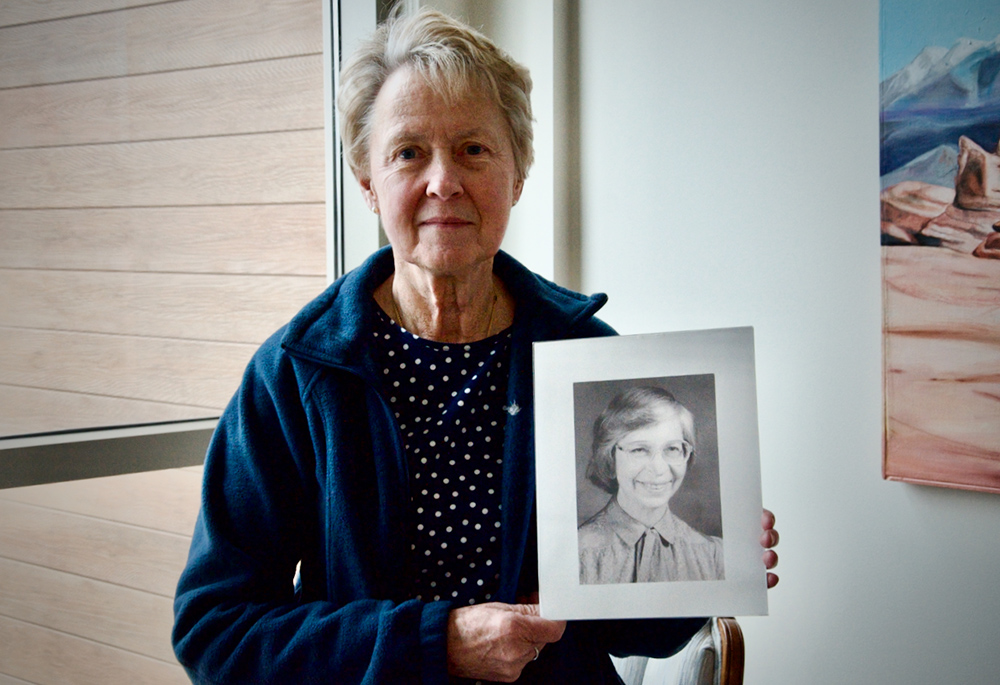
Cleveland Ursuline Sr. Gretchen Rodenfels holds a portrait of Sr. Joanne Marie Mascha, who was raped and murdered in 1995. Rodenfels taught at the same school as Mascha, and later lived with her at the motherhouse. (GSR photo/Dan Stockman)
The memories of that awful day in 1995 had never gone away, of course, and while the grief had faded to the background of their lives, it too had never disappeared.
But when Cleveland Ursuline Sr. Laura Bregar opened the letter, all of it — the shock, the horror, the attention, the unending sorrow — came roaring to the forefront.
"Of course, I just wept," said Bregar, now the congregation's president. "It brought it all back."
The letter, received in September, was from Daniel Pitcher, who raped and murdered Sr. Joanne Marie Mascha 30 years ago in the woods behind the congregation's motherhouse and is serving a life sentence in an Ohio prison.
He had written to the sisters, he said, because he was sorry and was asking for forgiveness.
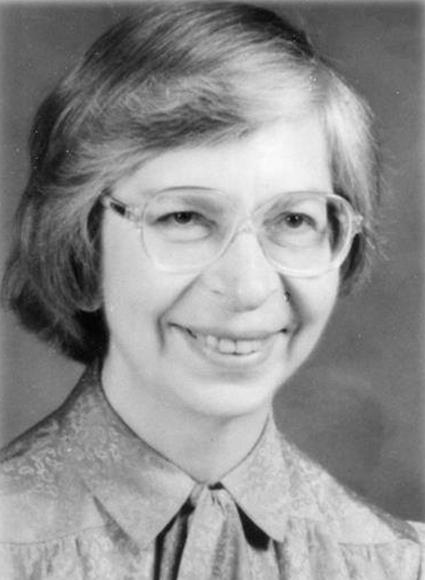
An undated photo of Cleveland Ursuline Sr. Joanne Marie Mascha taken before her 1995 murder. She was known for her love of peace and nature. (Courtesy of the Ursuline Sisters of Cleveland)
Mascha was 59 when she died, and was well known for her gentleness and love of nature. An avid bird watcher, she loved walking in the woods on the campus the motherhouse shares with Ursuline College. She was committed to nonviolence and active in peace and justice groups.
"I was actually stunned when we got this letter," said Sr. Joanne Gross, who is an attorney and helped her congregation navigate the legal process after Pitcher was arrested, charged and put on trial. "We hadn't heard anything in almost 30 years, and then we get this letter. It was like, 'Oh my.' "
The letter shook the few sisters who knew about it. But not because they didn't know how to respond to Pitcher's request for forgiveness.
"It was reliving the whole experience that was the challenge," Gross said. "When [Bregar] showed me the letter, there was nothing in my mind that said, 'I'm going to have to think about it.' The issue was bringing it all back."
Sr. Kathleen Flannery said time is a gift, because it brings healing.
"When you open the box again, it exposes everyone to what happened in that time," she said. "People still feel it very deeply. She was their friend. They grew up with her."
And Mascha's death wasn't the only tragedy the sisters had to relive.
Resurrected pain
In 1980, Cleveland Ursuline Sr. Dorothy Kazel, along with lay missioner Jean Donovan, and Maryknoll Srs. Maura Clarke and Ita Ford, were kidnapped, raped and murdered by government soldiers in El Salvador. Mascha's death had the sisters reliving the trauma of Kazel's death; Pitcher's letter brought back the trauma of both.
"When Dorothy Kazel died, it was a very public, horrific experience," Flannery said. "Then suddenly we had two sisters lost to violence. Both situations were very different, but the pain of loss is similar."
Each of the small group of sisters that knew about the letter knew immediately what their answer to Pitcher's request would be, but they still needed to take it to the rest of the congregation. Among the first to see it was Sr. Maureen McCarthy, who was president at the time Mascha was killed.
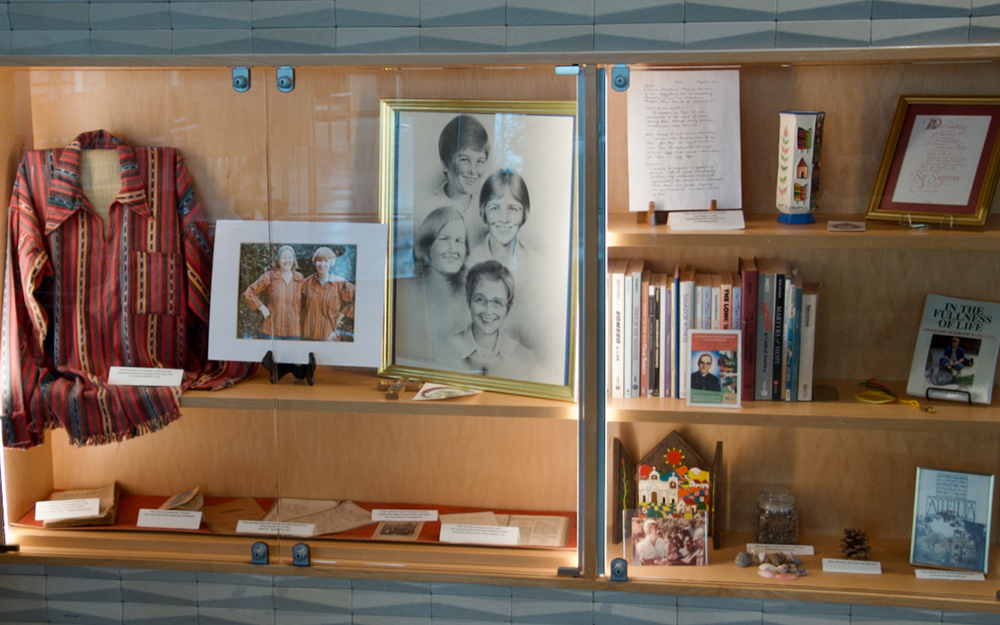
A display case in the gathering area of the Cleveland Ursulines' motherhouse is filled with mementos of Sr. Dorothy Kazel, who was killed in 1980 in El Salvador along with lay missioner Jean Donovan and Maryknoll Srs. Maura Clarke and Ita Ford. (GSR photo/Dan Stockman)
McCarthy told Bregar that not only did they have no choice on the question of forgiveness, but that they had already started the process 15 years ago, when the sisters said they did not want Pitcher to get the death penalty.
That stance came about almost as an accident.
The day after Mascha's body was found, McCarthy spent 13 hours giving interviews to reporters. One asked her, almost in passing, whether they would seek the death penalty, and McCarthy, without thinking about the fact she would be announcing the stance of the entire congregation, said she didn't believe in the death penalty because it is another form of violence.
"Immediately I knew this was going to be 'The Ursulines are against the death penalty,' " McCarthy said. Which they were in principle, of course, but it had never really been discussed and certainly not in relation to the sister who had just been murdered.
But all of the sisters except one backed the decision. Later, the congregation's office of peace and justice developed a corporate stance and made it official.
The prosecutors, however, forged ahead in their efforts to put Pitcher to death.
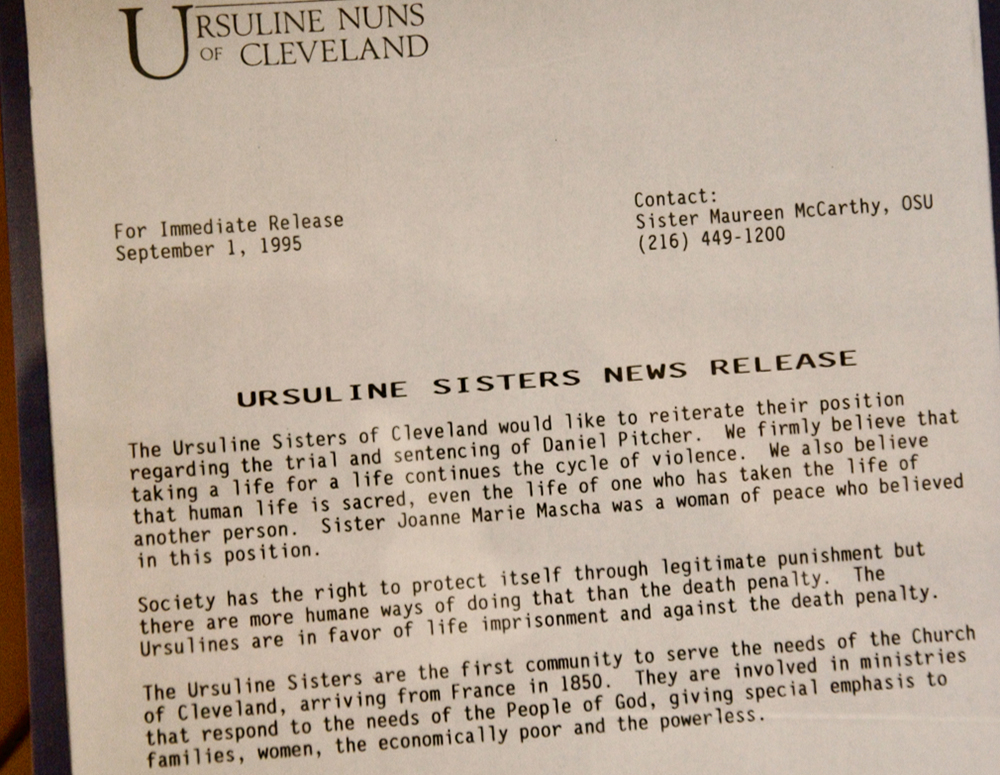
A copy of the press release sent out by the Ursuline Sisters of Cleveland in 1995 reiterating their opposition to the death penalty for Daniel Pitcher. He was convicted 10 days later and sentenced to life in prison. (GSR photo/Dan Stockman)
So the Cleveland Ursulines faxed all the other Ursuline communities to gain support for their stance. The Roman Union Ursulines, who had sisters on every continent but Antarctica, happened to be holding their chapter at the time. Soon, the Cuyahoga County prosecutor's office was getting mail, faxes and phone calls from sisters around the world asking them not to seek the death penalty. They were not pleased.
"We had clogged their fax machines, their phones were terrible, their mailboxes were full," McCarthy said. "They begged us to make it stop."
The sisters also prayed, which they believe had much more effect.
The jury returned its verdict Sept. 10, 1995, convicting Pitcher of rape, kidnapping, aggravated robbery, aggravated murder, and murder. The judge reviewed the verdict, then stopped the trial and called the sisters into her chambers.
"You people prayed," McCarthy recalled the judge saying. "There's no other explanation for this happening."
What had happened was that the jury, in filling out the verdict form, had not checked the box for the death penalty. The judge said the jury had asked questions on several topics, but never showed any confusion with the form or the penalty for felony murder. But without the box being checked, her only choice was sentencing Pitcher to 50 years to life. He will have his first parole hearing in 2030.
'I have absolute gratitude that Daniel is still alive and able to express himself.'
—Cleveland Ursuline Sr. Laura Bregar
"I don't think it was a mistake," McCarthy said. "I think it was the power of prayer."
Bregar said Pitcher's letter shows why the death penalty needs to be abolished.
"I have absolute gratitude that Daniel is still alive and able to express himself," Bregar said.
And because Pitcher is alive and able to ask forgiveness, the sisters were able to find the healing that only forgiveness can bring.
"This is a time of reconciliation, a time when I personally can move forward, a time when the sisters can move forward," Bregar said. Life has taught me that not to forgive ruins my soul. It's devastating for me. … To have the experience of being forgiven is life-changing. So if you've been forgiven, don't you have to give that back?"
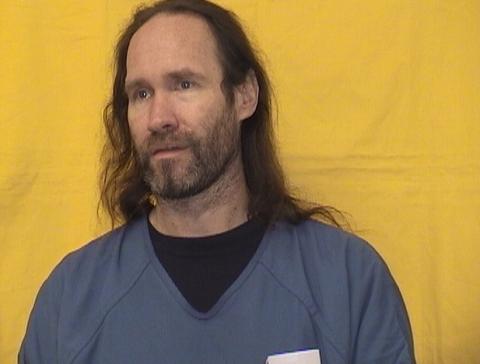
An undated photo of Daniel Pitcher, serving a life sentence in an Ohio prison (Courtesy of the Ohio Department of Rehabilitation & Correction)
An exchange of letters
Bregar got Pitcher's letter in September, and after consulting with the current leadership team and a few others, had Flannery reach out to Mascha's niece, who Flannery knew from parish work. The niece took the news to Mascha's surviving family members, who supported the sisters’ decision to forgive Pitcher. The sisters then consulted with the state prison system's Victims' Advocate Office, which noted that Pitcher was supposed to have sent his letter through them so they could ask the sisters if they wanted to have it delivered, but Pitcher somehow sent it directly.
The sisters' response was mailed Nov. 25, but it was still only a handful of sisters who knew Pitcher's letter existed. At a community meeting Dec. 14, Bregar read a four-page message to the sisters, who had no idea what was coming.
In one respect, the decision was almost mundane — of course the sisters forgave him. But the power and mystery of forgiveness is profound.
"The room was absolute, stark silence," Bregar said. "It was very tender and fragile and strong, all at the same time."
'To have the experience of being forgiven is life-changing. So if you've been forgiven, don't you have to give that back?'
—Cleveland Ursuline Sr. Laura Bregar
Pitcher, who was 21 at the time he killed Mascha, has been described as both deeply troubled and as having intellectual disabilities — he had been building forts and stalking birds with a bow and arrow in the woods where he encountered Mascha. He had been abused as a child and spent years in the foster system. His handwritten letter, Bregar told the congregation, was brief and simple and hard to read.
"When I opened the letter, it hit me like a ton of bricks," Bregar told the 70 or 80 sisters gathered. "I don't know if it was relief or a little anxiety or residual sadness — or any combination of that plus things that lie below the surface of my consciousness."
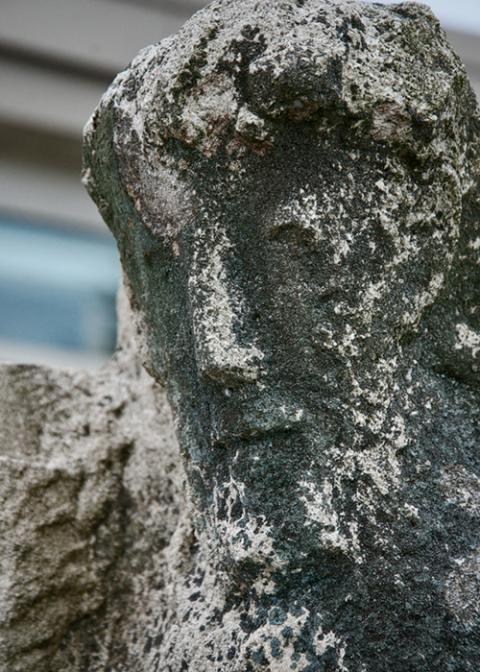
Sr. Joanne Marie Mascha's family donated a statue of St. Francis to the congregation after her death to commemorate her love of God’s creatures. (GSR photo/Dan Stockman)
She read them the letter, which begins: "Dear Ursuline Sisters, I hope everything is going good. I write to ask forgiveness for what I did to Sister Joanne Marie in March of 1995 in Pepper Pike, Ohio. I was a scared kid who didn't ask for help. I am truly sorry that I killed her."
He goes on to say that he wishes he could take it all back, and that he hopes he hears from someone. He signed it, "Your Friend, Daniel Pitcher."
Bregar detailed the process the leadership team went through, then read the letter they wrote in response.
"Please know that we appreciate your words of regret in the killing of Sister Joanne Marie," it reads in part. "She was a loving woman who would never have caused physical harm to another. When you took her life, you deprived our community, her family and God's world of a gentle person who only wanted to spread God's love. Nonetheless, we trust that she would want us to offer forgiveness to you in her name."
The letter says the sisters hope he is taking advantage of the chaplains and religious services available to him, and that "We accept your apology. We ask you to live out your desire for forgiveness by being a person of goodness, peace and kindness."
It closes by saying the sisters will keep him in their prayers.
"You come to a meeting — we thought it was going to be a mundane community meeting — and then [Bregar] presents that," said Sr. Susan Durkin. "You could hear a pin drop in that room. I think the unexpected nature of it and just being open to that moment — it was very powerful to watch how it affected us as a group."
Durkin said many sisters didn't realize how much they needed this.
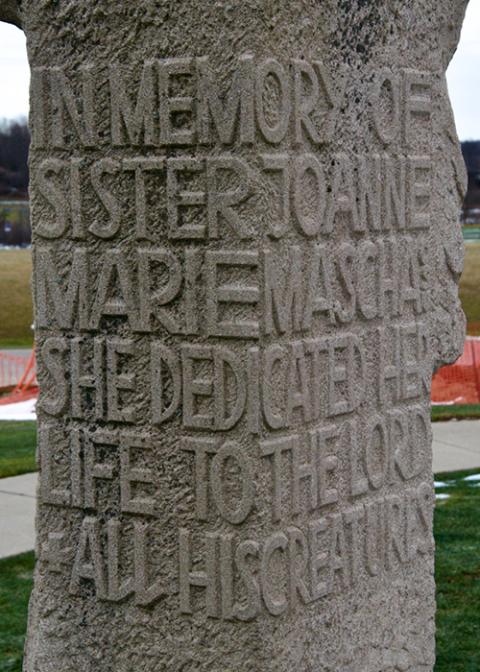
The inscription on the back of the statue donated to the Cleveland Ursulines by the family of Sr. Joanne Marie Mascha after her murder says she dedicated her life to God and his creatures. (GSR photo/Dan Stockman)
"Personally, I felt some sort of a warmth in me, or a weight that had been lifted that was there and I hadn't realized," she said. "It was palpable in people's responses."
Bregar said not a single sister asked why leadership forgave Pitcher, or why they forgave him in their name without asking them first.
Instead, they thanked her.
"To see this transformation as a community all these years later, it was such a beautiful thing," Durkin said. "It was a powerful moment in my faith life that I will never forget."
McCarthy said that no matter how profound the decision was, it was also what was required by our faith.
"I'm still mad at him for what he did. He did such terrible stuff to her and to the community," she said. "But God is a forgiving God. How can you say you believe and that we're forgiven, and not do that for somebody else?"
Gross is more succinct.
"I'm still wondering what it all means," she said, "but this is who we are."
Advertisement
Transformational healing
But forgiving Pitcher is only the first step in the healing process. And because they are Catholic sisters, they don't want the healing to end with them.
All of the sisters interviewed said this is not about them forgiving the man who murdered one of their own: It is about their renewed commitment to ending the death penalty.
"How do we take these experiences and make them transformational for others?" said Durkin, who is spearheading the congregation's efforts. "This is the next step on our journey."
While the community has actively opposed the death penalty for years, Pitcher's letter has spurred them to action.
'How do we take these experiences and make them transformational for others? This is the next step on our journey.'
—Cleveland Ursuline Sr. Susan Durkin
"When we received this letter, it reminded me that we had sort of let that corporate stance fade," Gross said. "We have not, as a congregation, really acted on it lately, and this was a reminder we probably need to reengage with that issue."
They're now working with Catholic Mobilizing Network both nationally and to push Ohio officials — who have already paused any further executions due to the unavailability of the drugs used for lethal injections — to ban the practice altogether.
"I think we have the opportunity in the next year to say, we've had this pause, let's look at the data," Durkin said. "They always say the death penalty is a deterrent. Well, let's look at that and see."
Ohio Gov. Mike DeWine ordered the halt to executions, and the Ursulines believe he might be persuaded to end them permanently, but he is leaving office at the end of next year.
"We've got to get something done before then," McCarthy said. "We really want to use this in a positive way in honor of Joanne Marie."
Durkin said this letter and the congregation's response happened for a reason.
"It made us realize you need to read the signs of the times," she said. "The signs are telling us, this is the moment, you've got to push again."






